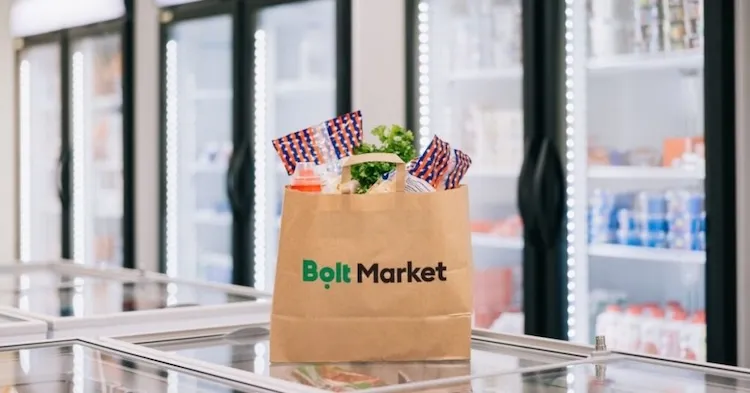With the opening of Bolt Market, a new grocery delivery service in Nairobi, Bolt, a mobility platform well-known for ride-hailing and food delivery services, is growing its digital ecosystem. This calculated move aims to take advantage of the rising demand for on-demand, fast supermarket shopping.
Through this growth, Bolt can capitalise on the rising need for quick and on-demand grocery delivery, providing customers with a simple option to ensure access to staples. The move is a component of Bolt’s overall goal to broaden its range of offerings, increase its market share, and establish itself as a reliable platform for delivering groceries on demand and in a convenient configuration.
Read also: Bolt expands accelerator program to South Africa, offers R40,000 funding to startups
Customers who use the Bolt Food app may now place orders for supermarket delivery between 8:00 a.m. and 11:00 p.m. They can also book their weekly basics and food delivery 24 hours before. In the vicinity of its Bolt Market location in Kilimani, Bolt Market will do business within a ten-kilometre radius.
This latest breakthrough comes three years after the company initially introduced Bolt Market to Estonia, the company’s native market. Edgar Kitur, the general manager of Bolt Food, stated that the grocery delivery vertical intends to better serve Kenya’s flourishing grocery delivery area. He was speaking about the significance of the new service that would be available on the Bolt Food app.
He said, “With the launch of Bolt Market grocery delivery in Kenya, we aim to better serve a thriving food and grocery ecosystem that is a foundation for a city people love to live in”.
It should not be surprising that Bolt picked Kenya to begin its market, given that the industry is rapidly expanding and its growth projections are remarkable. The firm claims that it is entering the Kenyan market to provide clients with an easy way to obtain reasonably priced necessities.
The company stated, “The move is part of Bolt’s strategy to expand its services, grow its market share, and establish itself as a trusted platform for convenient, on-demand grocery delivery.”
Glovo, on the other hand, is a firm that, according to the poll conducted by Kenya’s competition authority (CAK), has already established itself as the most favoured platform for food and grocery delivery. The company anticipates facing severe competition from Glovo.
Nevertheless, the electric mobility firm is accustomed to intense rivalry. It is constantly battling with other large companies, such as Uber and inDrive, to gain market share across its key markets.
This competition extends from the ride-hailing to the food delivery vertical.
On the other hand, it has not always been able to compete favourably in the meal delivery market. A little over a year ago, Bolt Food announced that it would withdraw from the Nigeria and South Africa markets, citing the intense competition in both countries. Despite what it referred to as “heavy investments,” the company could only get a five percent share of the market in Nigeria. This is especially noticeable in that country.
















